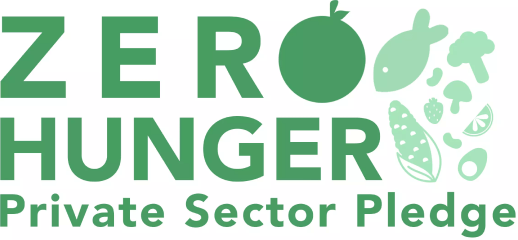
Balancing private sector accountability and active company engagement
Interview with the Shamba Centre for Food & Climate, Coordinator of the Zero Hunger Private Sector Pledge (ZHP), and Walk the Talk Consultancy, who carried out the independent evaluation that led to the first reporting process for the ZHP.
The Zero Hunger Private Sector Pledge (ZHP) just launched its first accountability report. Why is this important?
Shamba Centre: Since its inception, the Pledge has had the ambition to go beyond the mobilization of private sector commitments and to ensure the translation of pledges into action. That is important in the context of both an increasing role and responsibility recognized for the private sector in advancing the sustainable development goals (SDGs). At the same time we see a trend of increasing public scrutiny and skepticism over the concrete action and impact that follows from corporate announcements and commitments on environmental, social and governance (ESG) outcomes, which asks for strong accountability.
It was always integral to the ZHP’s strategy not only that it drives more private sector investments in priority interventions and countries, but also that it commits to reporting progress on implementation – and eventually impact – towards SDG 2. That is why the ZHP requires all companies to commit to being able to report on the implementation of their pledge. And that is why, over the last year, the ZHP has undergone its first accountability exercise, starting with the revision of its accountability framework.
The accountability exercise began with the revision of the ZHP’s accountability framework. How was this framework developed?
Walk the Talk: A draft framework had been developed by the technical partners in the ZHP. That framework already provided for varying degrees of reporting requirements on companies depending on their total commitment amount. Companies with pledges under USD 1 million would only be required to submit case studies and stories on a voluntary basis, while those with pledges of at least USD 1 million would need to engage in a formal reporting process. That level of differentiation was necessary to allow small and medium-sized enterprises to join the Pledge too.
In our consultations with the pledging companies and technical partners in the ZHP, we identified the need for a second level of differentiation, between publicly listed and privately owned companies. The former are already and increasingly required by public regulators to disclose information on their ESG targets and performance. While the need for accountability applies equally to public and private companies, the need for transparency is greater in the case of private companies. That is why the final accountability framework also allows different means of verification for public versus private companies.
All companies which had made pledges of at least USD 1 million, i.e., 16 companies, were involved in the formal reporting process. They were asked to provide information about the amounts invested during the reporting period (2021 and 2022) as well as alignment with the ZHP’s priority interventions and countries. To confirm this information, we required means of verification, which included partner confirmation, proof of investment, press release or public report, etc. For public companies, a signed statement was accepted in lieu of this external validation.
How do these two levels of differentiation, with varying reporting requirements for different companies, affect the accountability ambition of the Pledge?
SC: We recognise there is room for improvement in relation to both the framework and the reporting process.. The first accountability report is an initial step in the ZHP’s journey towards accountability and, eventually, impact. It has been and will remain a delicate balance to ensure that we continue engaging with the private sector not only to drive more and meaningful commitments for investments in priority countries but also to ensure that these investments are actually deployed and delivering on their intended outcomes and, ultimately, impact.
We also see this year’s experience, as well as subsequent, strengthened exercises, as beneficial to pledging companies. In the sea of initiatives tallying corporate pledges on sustainability, the ZHP distinguishes itself by promising to track implementation – and by already being in a position to confirm some progress in translating company commitments into tangible investments.
We are encouraged by the initial findings from our first accountability report, which confirms that USD 140 million have been spent to date on 103 projects in 46 priority countries. We are enthusiastic that pledges are indeed being converted into action! But we must also be honest and humble in acknowledging that this amount is just over 28% of the USD 500 million committed by the 16 companies concerned by this reporting process. That leaves USD 359 million remaining to be accounted for in future reporting periods – and more commitments are also critical.
To date, the ZHP has tallied nearly USD 575 million in pledges from 50 companies and for 49 priority countries. Again, that is an impressive amount, but it needs to be put into perspective. The financing gap to achieve SDG 2 is estimated between USD 330 and 500 billion. Of course, not all of it shall or will come from the private sector, but these figures give a sense of the scale of financing required to achieve SDG 2. They also highlight the imperative of fostering more collaboration between the private sector, donors, governments, and other stakeholders if we are to sustainably eradicate hunger globally by 2030.
Read the framework | Read the report | Pledge now | Contact us
